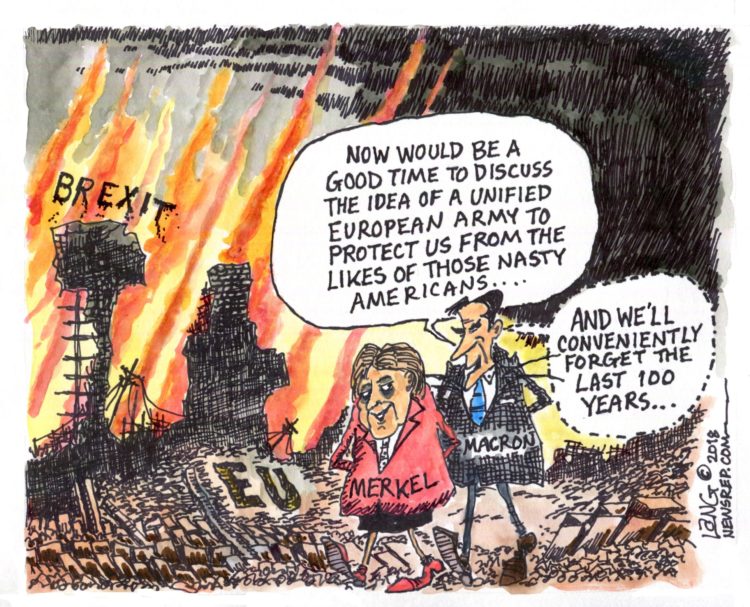In response to growing pressure from the United States, the German government has decided to increase the size of the German military (Bundeswehr) by adding an additional Panzer battalion. The 363rd Tank Battalion, which will bring the number of tank battalions in the Bundeswehr to six, will be formed in late 2019. The 363rd Tank Battalion will be based at a military base near Frankfurt, in Western Germany. As far as its equipment, it will be outfitted with 100 Leopard A7 main battle tanks. This will be the first time that the German army has grown since the end of the Cold War.
“With this, the German army will grow for the first time in decades,” said von der Leyen during a visit at a military base.
Earlier this year, however, a leaked report revealed that the Bundeswehr was short on everything. For example, a Panzer brigade had just nine operational Leopard 2 tanks out of the indicated 44. This suggests a significant shortage of spare parts and maintenance capabilities — the revelation was all the more surprising given the fact that Germany manufactures the Leopard tanks and doesn’t have to import spare parts. Furthermore, the leaked report showed that the Bundeswehr was also lacking in basic night-vision equipment, winter clothing, and body armour.
But the latest developments indicate a reversal. The formation of the new outfit reveals a German resurgence in matters of defence. In 2019, Germany is scheduled to take the lead of NATO’s multinational Very High Readiness Joint Task Force (VJTF). Furthermore, the German government has announced a $4,5 billion increase in the defence budget in an attempt to reach the target of 2 percent of the gross domestic product (GDP) that is required of NATO member-states.
One of the major problems that the European Union (EU) and NATO are facing is that they can’t deploy troops to the Baltic States or Eastern Europe quickly enough in the case of Russian aggression. The EU has tried to alleviate this issue with some projects under the Permanent Structured Cooperation (PESCO) agreement that was introduced in 2017.
The growth of the Bundeswehr and of the German defence budget appears to be the result of U.S. President Donald Trump’s aggressive diplomacy. During the summer, President Trump had sent letters to numerous U.S. allies chastising them for their lackadaisical commitment to the transatlantic alliance. And now his efforts are bearing fruits. And yet, the resignation of General James Mattis as Secretary of Defence has not pleased America’s allies in Europe. Mattis was a staunch supporter of multilateral alliances. Only time will tell how U.S. allies will react.
Already have an account? Sign In
Two ways to continue to read this article.
Subscribe
$1.99
every 4 weeks
- Unlimited access to all articles
- Support independent journalism
- Ad-free reading experience
Subscribe Now
Recurring Monthly. Cancel Anytime.











COMMENTS